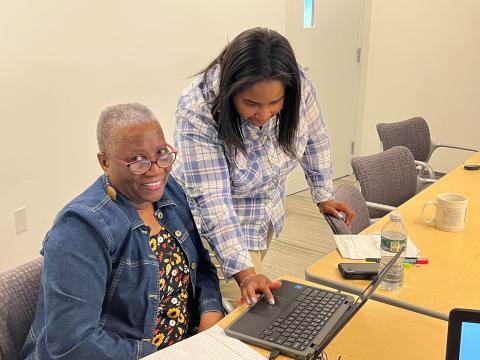
Program Press Releases
Following the passage of An Act Relative to Immediate COVID-19 Recovery Needs, also known as Massachusetts “ARPA 1.0” legislation (codified as Chapter 102 of the Acts of 2021), a $50 million Broadband Innovation Fund was established to bridge the digital divide as a component of the Commonwealth’s COVID recovery and response efforts. MBI solicited nine qualified organizations, named Partners, to implement a suite of digital equity projects that would meet the goals outlined in the state’s legislation. Read the Digital Equity Partnership Grant Solicitation here.
Nine organizations were awarded as grant recipients:
- AgeSpan, on behalf of the Massachusetts Healthy Aging Collaborative;
- Baystate Health, on behalf of the Western MA Alliance for Digital Equity;
- The City of Boston;
- Tech Goes Home;
- The Massachusetts League of Community Health Centers;
- The Metropolitan Area Planning Council;
- The Metro North Workforce Investment Board;
- UMass Lowell; and
- Vinfen, on behalf of the Human Services Alliance for Digital Equity.
These Partners are working with organizations such as community development corporations (CDCs), community-based organizations (CBOs), municipalities and municipal agencies, public housing authorities, community colleges, local and regional school districts, healthcare and telehealth organizations (including federally qualified community health centers), and other entities as sub-awardees to implement digital equity projects within the following program areas that align with the legislative goals of the Broadband Innovation Fund and meet federal requirements established by the US Treasury for the use of Coronavirus State and Local Fiscal Recovery Funds (SLRF).
WiFi Access Initiative
WiFi systems in affordable multi-unit buildings or in low income neighborhoods will provide free, in unit, broadband use
Public Space Internet Modernization Initiative
Improvements to inadequate broadband infrastructure and digital use in public spaces to increase daily use and services
Connectivity Economic Hardship Initiative
The provision of WiFi cellular hot spots to individuals lacking stable housing where they are unable to have a fixed broadband internet subscription
Digital Literacy
Establish and implement digital literacy training programs to ensure that target populations have the requisite skills to use devices, online resources, and digital tools to needed effect
Device Distribution and Refurbishment Program
Projects under this program aim to secure new or used internet-connected devices that can be distributed to target populations
Education, Outreach and Adoption
Direct assistance to the target populations to ensure that effective outreach, education and adoption assistance is available in concert with the above programs to ensure their maximum impact
